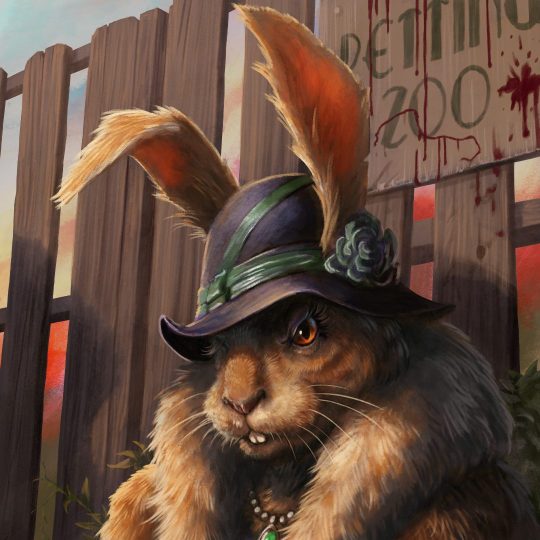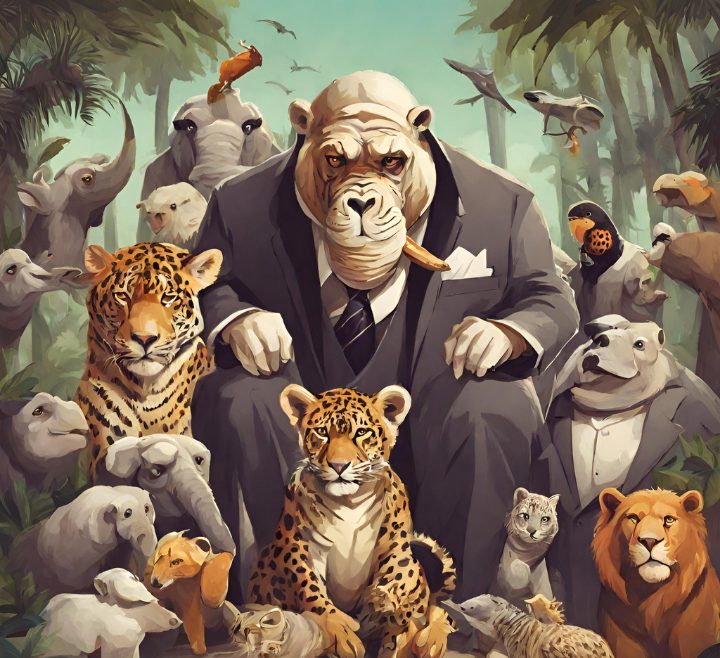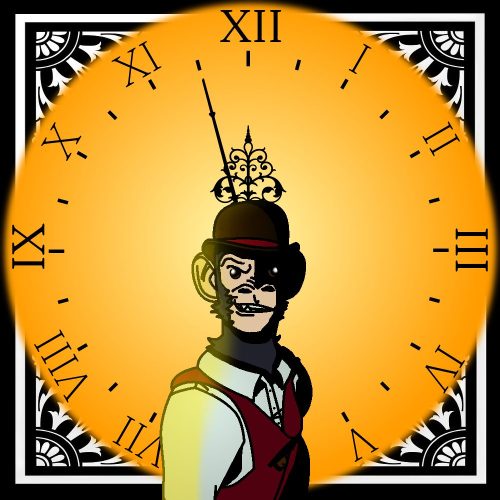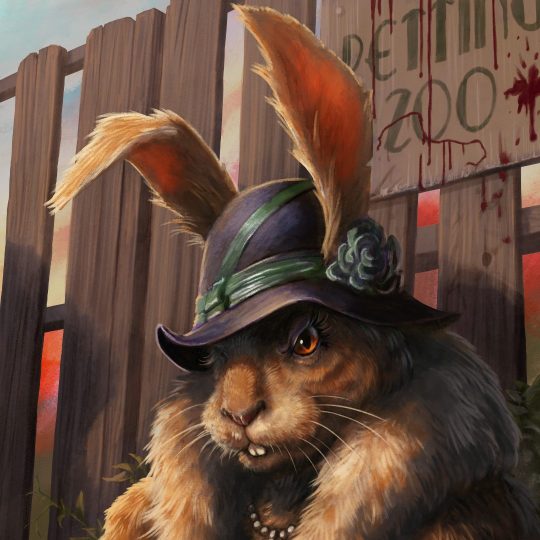
Foot in the Door
One of the reasons I’m writing for Nerdarchy is bribes… I mean, because I worked within the gaming industry for 13 years — at Chessex Game Distributors, TSR Hobbies and Games Workshop US. I’ve had people on Facebook groups ask me about my time at various employers. Today I’m putting pen to paper (I write out everything longhand before typing) to write about my time at Chessex Game Distributors (CGD). My facts about this are from online resources and my own memories. Any errors are my own — after all, it’s been almost thirty years — and no harm is meant by any mistakes, which I’d happily correct if informed.

Getting into the gaming industry
Chessex was founded in 1987. The manufacturing division still operates, now out of Fort Wayne, Indiana. The name is formed off of Chess, as some of the first things they made were high end chess boards and pieces. The owner, Don Reents, is also a passionate chess player. Somewhere along the line they started making high quality dice, gaming mats, figure cases, chess clocks… lots of things.
When I started in 1991 there were four locations: Chessex East in Phoenixville, Pa and Chessex Midwest in Fort Wayne, Indiana (the HQ) were hobby game distributors. There were also two manufacturing locations in Berkeley, California and Fort Collins, Colorado. Chessex covered the contiguous United States west to the Rocky Mountains. Due to a “gentleman’s agreement” Chessex wouldn’t ship to stores west of the Rockies and Berkeley Game Distributors (the West Coast powerhouse) wouldn’t ship east of the Rockies. If a west coast store contacted us we would send the information to them and vice versa.
Then (and I think now) there was a three tier distribution system for games. I’ll use TSR as an example. TSR would create and print the games. Chessex would buy the games and warehouse them at say (for arguments sake) 60% of retail. Retailers would then order the games from the distributor at a given discount. (Chessex was straight 50% 30 day invoice, retailer paid shipping.) TSR to Chessex to Store. Tinker to Evers to Chance. (Deep cuts reference there!) Some manufacturers like Games Workshop only gave distributors a 50% discount, so the distributors changed the price of those items accordingly. Distributors would operate on that approximate 10% margin. Got that?
In 1991 I met my eventual wife. I’d already planned to go to the Origins Game Fair, which was held in Baltimore over July 4 that year. For those who don’t know, Origins is/was a board gaming convention but had some RPGs. At the time its location moved each year but since 1996 its been held in Columbus, Ohio. Anyway, the two of us went and had a blast. We’d planned to drive up to State College that night but my wife suggested we stay overnight in Baltimore to catch the fireworks. And so we did.
The next day we went back to the convention where we walked around. My wife was wearing her Phoenixville High School hoodie (her alma mater) and someone from the Chessex booth called us over, saying, “Hey — we’re in Phoenixville!” That person was Ron, who at the time was one of two people answering the calls from retailers there. As I was working at TGI Fridays at the time I asked them if they were hiring. After an interview or three I was hired. I started in August 1991. Chessex East was in the Byrne Building, at the time a slightly run down warehouse (it’s now high end condos). All operations were done by hand. Retailers would call in their orders, which we wrote out on order forms using manufacturer’s codes (example: the TSR black box basic set was TSR 1070).
The orders were put on a clipboard hung on a plywood wall, where there was room for 30 clipboards. The order pullers would take a cart, pull the order and deliver the cart to the two packing people who were older guys: Joe and Dale. They were experts at packing boxes. While they packed the boxes a person would total the invoices by hand and this would be taped to the outside of the box with the address showing. The boxes would be stacked and given to UPS that evening. All of this was done by hand. No computers, no frills. In fact, the closest things to a computer in the old Byrne building warehouse were pocket calculators and the fax machine.
Some retailers were on the fax program and faxed in their orders, for which they received free shipping. At first we also had an outside rep who worked on commission who would also fax in orders. We would also receive shipments from manufacturers and one of the order pickers, or whoever was available, would receive the orders and disperse the items to their proper places in the warehouse. Sometimes, with large restocks like TSR or Ral Partha it would be all hands on deck.
The first couple of years were a lot of fun. The other phone person was Tim, a former Games Workshop person. Both he and Ron were incredible miniature painters, each with multiple Golden Demon awards. There was also a manager Chip; credit manager Ed; invoicer Trish and order puller Jeff. I became the second order puller. Jeff taught me the job. He was a quiet man — older and quite a history nerd. I remember him showing me around as he showed me how to pull an order. GW was here, back here is Horizon Models, over here is Ral Partha, FASA, Avalon Hill and so on.
What I didn’t realize was TSR had its own separate room. I remember when we entered that space. I was in heaven! Everything TSR had in print at the time and some that were out of print. I still smile when I think back about it. If something was out of stock we had empty miniature boxes that had OS (out of stock) on one face, OSM (out of stock at manufacturer) and OP (out of print) on other faces. We’d put these boxes in the space where the item was to be stored. Sophisticated!
Also all inventories (done weekly or twice a month, depending on the line) were done by hand. Chessex also served overseas distributors with American games, who always had huge orders. Within a few months Tim left to help his brother who owned Task Force Games (Starfleet Battles). I was promoted to the phones. My friend Cloyd had just mustered out of the Army and needed a job until he could find an engineering job. I suggested him to Chip and he was hired. Eventually I had several friends working there, like Mike and Erik. There was also someone I’ll call Kurt. Kurt was hired after Cloyd as an order puller. He was, well, not intelligent. At all. We always had to correct his mistakes even after he’d been there for years. There were other issues with him but they aren’t pertinent to this narrative.
In 1992 I traveled to the GAMA show in Las Vegas with Ron and Don. It was my first time in Vegas, and first time meeting many people from the manufacturers. I’d already met Matt Forbeck who worked for Grenadier Models and now an award winning author and creator of the game Deadlands and Jack H., who owned Ral Partha. He was quite a character! In Vegas I met people from all the other manufacturers as well as the other distributors. I have several stories from this trip but they’re for another time.
Ron had an interesting situation. He lived in Syracuse, New York where his wife attended law school. He would arrive to work Monday morning and stay until Thursday after work. He lived in the break area of the warehouse. This had several advantages but a major drawback — that warehouse was not climate controlled and got very cold in the winter.
One day Ron invited me and Mike (Cloyd had since moved on) to join him after hours to play board games he owned. This became a weekly game night, usually GW, during which I learned so many games I’d never tried. I learned Heroquest, Space Crusade, Talisman, Fury of Dracula… so incredible!
Oh, I almost forgot. We didn’t get bennies but we did get an employee discount. We paid what the retailers paid, which was usually 50% off. As you can imagine my game collection became rather large, as did my miniatures collection. In 1992 and 1993 I went to Gen Con in Milwaukee where I met with reps of new manufacturers and placed orders with those I thought would sell. At Gen Con 1993 I saw Magic: the Gathering was everywhere and urged my boss to order as much as possible (I told that story before.)
Also in 1992 I started working as a freelance Dungeons & Dragons editor for TSR. Around late 1993 and early 1994 we’d outgrown the Byrne Building due primarily to Magic: the Gathering. We needed space for the huge amounts we’d get in (and quickly ship out — this was the Magic craze after all!). Also TSR was putting out more big box games, as well as Avalon Hill and GW. There were also many new miniature lines. Oh, and GHQ terrain system. And paints. And…
The new warehouse was in Malvern and was maybe five times larger and much higher. Also the office area was climate controlled! However, the cement on the floor was of a poor grade and seeped water, which meant all the product had to be off the floor. The concrete didn’t have the give of the creaky wooden floors of the Byrne, which soon led to sore backs for everyone who stood for most of the day. We moved over to the new warehouse little by little, ordering in restocks to arrive there, which would fill those shelves (weekend work) while fulfilling orders at the Byrne building. Then, in a marathon weekend we transferred all operations to Malvern.
By then, we were hopelessly understaffed. We had two phones, each with five lines, which on a Monday were constantly ringing. One person would take messages while the other would call back to place orders. Yes, there was favoritism there. Retailers who were more pleasant got called back faster, as well as those who paid their bills on time. We also finally got a computer, an IBM, which I had no clue how to use (I was a Mac user.) Don wanted to put then entire inventory into the computer but do it line by line. That would be the phone salesmen’s job when not on the phone, or Ron’s. I also did the daily and weekly newsletters to be faxed out on that computer. I was burning out fast.
The Magic craze made retailers almost feral. Their customers wanted Magic cards, which were in very short supply because each run was limited back then. When we had them, we shipped them. When we didn’t we heard about it. My dream job was becoming a nightmare. I was putting in extra hours as a salaried employee to return calls, pick and pack orders and attend conventions. The rule of thumb was we had to finish all the orders on the board before leaving. My wife (we married in 1993) was getting upset I was never home at a given time. Also there were extra duties added on but no extra pay.
In October 1994 I had enough. I was fried. Even though I had no other job lined up I put in my two weeks’ notice. On my last day I was to leave at noon. I learned several things that day. The first is my boss Chip was also leaving. It was also his last day. This was because Don was coming to east warehouse to personally assume control.
At 11 a.m. I received a call from Mark Hall, sales manager at GW US in Baltimore. He’d heard I was leaving Chessex. “Would you like to come work for Games Workshop?” he asked. I called my wife to discuss it and before I left Chessex I was hired by GW. My last act at Chessex was to sign a seven figure dollars purchase for Magic: Fallen Empires — the first time they would print to fill all orders. My standing instruction for Magic was to total the preorders (done by hand), multiply by 10 and order that amount. Fallen Empires was the first supplement not to sell well. I guess because everyone had it. A lot of it.
In 1998, Chessex distribution merged (was bought out) with rival distributor the Armory, forming Alliance Game Distributors. They eventually merged with Diamond Comic Distributors. Chessex manufacturing still exists, making their lines of dice and so on. I personally think Chessex dice are the best out there (that is my opinion alone and I don’t speak for Nerdarchy) as are their gaming mats. [NERDITOR’S NOTE: We live the Easy Roller Dice life! Use the one time coupon code DDSPECIAL for 25% off your first purchase here.]
Looking back I miss those early days. I was young then, in my 20’s, working in a business I loved, playing games with friends, occasionally travelling, I was in love… it was wonderful. At Games Workshop I signed a non-competition agreement so I had to resign from TSR. Still, to date, those early days of Chessex were the best of my working life. Yes, I had good times at GW, but it just wasn’t as… carefree? Maybe that’s the word. There wasn’t the sense of discovery and newness. The gaming industry was at a cusp of a new era and many of the old guard were still making games. Being part of such a paradigm shift was exciting. I miss that.
The takeaway to this is working in the gaming industry is work. Yes, after work we’d play games but the work itself could be quite physical with boxes up to 80 pounds and stressful. Chessex was warehouse work. I’m sure the strain I put on my back there is one of the reasons my back is a wreck today (my fault for lifting 80 pound boxes incorrectly!). For the most part I really liked everyone with whom I worked. Several are still in the gaming industry today. Chip now manages a line of (non-gaming) retail stores. Ed the credit manager owned his own store for a time but I don’t know what he does now. Ron now works for Mayfair Games, managing their Catan division. His wife graduated, became a lawyer and last I knew was serving on the Phoenixville City Council. Cloyd is a big wig in engineering. Mike runs a series of bike stores. Dale and Joe have regrettably passed on.
After I left a few other of my friends were hired. All are now doing well in other fields. Jeff was a semi-regular at the bookstore where I worked. We would talk about history and so forth. After I transitioned he didn’t speak to me again. No idea about Trish, Kurt or the other order pullers. Still, this job set me onto a career I hoped would never end… but did. Now all I have are the remnants of my game collection, a pile of now-rare unpainted miniatures and my memories.









No Comments